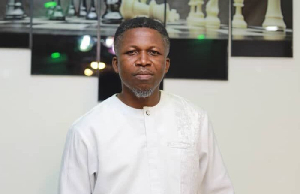Accra, Oct. 16, GNA - Professor Daniel Adzei Bekoe, Chairman of the Council of State on Tuesday expressed regret that though Africa had enough land and human resources, adequate food supply continue to be the worst of the problems hindering socio-economic development. He said Africa needed to make technologies available to grow improved, high yielding crops to meet the food security problems of the growing populations and ensure that Africa attained self-sufficiency in food production.
Speaking at the opening of a 10-day international training on "Advanced Plant Tissue Culture and Dihaploid Techniques" in Accra, Prof Bekoe said there was the need to train more scientists to equip them with modern techniques and skills in plant breeding to solve the food insecurity.
The course attended by 13 countries was aimed at equipping scientists to develop new, more efficient and cheaper large-scale production protocols on haploid production to improve plant-breeding programmes.
Organised by the Plant and Soil Science Department of the Biotechnology and Nuclear Agriculture Research Institute (BNARI) of the Ghana Atomic Energy Commission (GAEC) in collaboration with International Atomic Energy Agency (IAEA), the training programme would also enhance plant breeding and agricultural improvement in the sub-region.
Prof. Bekoe noted that the use of dihaploids in plant breeding had shown to shorten the breeding cycle and that technology could be used to improve staple foods most of which were classified as "orphans" in terms of research.
He urged the participants to avail themselves to be equipped with the technologies and the needed skills to ensure food security on the continent.
Prof Dominic Fobih, Minister of Education, Science and Sports in a speech read for him by Nana Yaa Osei-Brimpong, Director in Charge of Tertiary Education of the Ministry commended BNARI for using biotechnological tool to disseminate crops of highly economic value to numerous farmers in the country.
He noted that the BNARI was producing carotene-rich sweet potato for vegetable producers and exporters association of Ghana using tissue culture whilst the Department of Plant and Soil Sciences was in the process of establishing a national Vitro Repository for all under utilized staple food crops as well as crops threatened with genetic extinction be conserved in Vitro gene banks to serve as duplicate for traditional conservation of food crops.
"It will provide readily plant materials for crop improvement programmes in the country", he added. He said the production of most stable crops such as plantain, cassava, yam, cereals, and grain legumes were constrained by lack of improved planting materials, diseases and pest, declining production levels though population continued to increase. He recommended the use of tissue culture to provide year-round disease free planting for farmers and that government would give maximum support to research institutions to equip them with these new technologies.
Dr Yaw Serfoh-Armah, Deputy Director General of GAEC reading the speech of the Director-General Prof Edward Akaho outlining the numerous achievements of BNARI said it had developed swollen shoot virus resistance in cocoa with Cocoa Research Institute and good cooking cassava mutant namely "TEK Bankye" with the Kwame Nkrumah University of Science and Technology.
General News of Tuesday, 16 October 2007
Source: GNA












